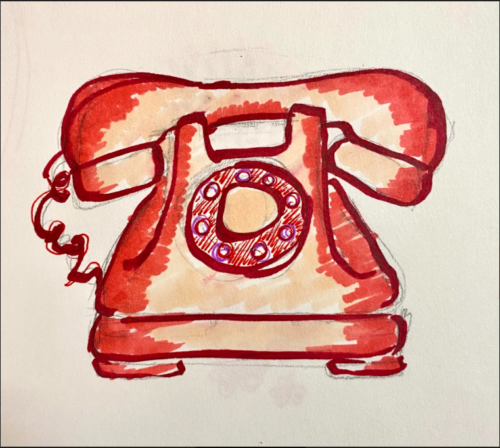The trials and tribulations of long-distance relationships are nothing new, but what do you get when you mix them with a global pandemic? COVID-19 has tested couples in unforeseen ways, causing a sort of “make or break” mentality for their relationships this past year. Couples have been forced to either quarantine together or remain distanced and adjust to seeing each other at a record low rate. These challenging circumstances, combined with the ubiquitous fear of physical affection—elbow taps have replaced hugs—have put relationships to the ultimate test.
For some people, the pandemic proved uniquely strengthening to their relationship. “You are sort of forced into living with your significant other for an extended period of time,” says a student who quarantined with her boyfriend last spring. “That can make a relationship a lot more serious, which was definitely my experience.” But if that time ends and they are forced to move away from each other, new challenges may add to preexisting long-distance difficulties. “I haven’t seen my boyfriend since September,” she explains. “He lives in a different country and isn’t sure when he will be able to come back to the U.S., so COVID-19 is definitely putting our relationship into the two extremes as an eighteen-hour time difference isn’t exactly what I anticipated when we started dating.” While her boyfriend has chosen to take a gap year and stay home, she has continued to take classes in Cambridge.
In my own life, I have experienced an “absence makes the heart grow fonder” effect induced by a long-distance relationship and further magnified by the pandemic. Quarantining with my boyfriend in a time of hardship gave me a new sense of appreciation and love for him. But now that we’ve each returned to our respective colleges, it isn’t a question of when we’ll be able to see each other again—it’s a question of making it work during a time when thousands of people aren’t able to see those they love. When nothing is certain and flying across the country isn’t feasible, it’s nice to have your one constant, even if it’s on FaceTime.
But this also prompts the question of whether one is truly in love or simply seeking consistency. The “safety net” of having a significant other is common in college relationships. Kate Tunnell ’24 remarks on her previous relationship: “it felt like something safe when everything else seems so unsafe.” Could long-distance relationships pose as an excuse to feel like not everything in our lives had to change during a global pandemic? Will people “manufacture” their affection in hopes of preserving consistency and comfort in a time of transience and uncertainty?
Looking beyond the Harvard College community, couples in the broader world are facing new challenges, too, whether they are stuck in the same household or communicating across disparate time zones. COVID-19 is prompting an increase in the terminations of long-distance relationships, according to BBC research. Break-ups and divorce applications have skyrocketed across the world, and online searches for “how to end a relationship” have spiked. Divorce lawyer Carly Kinch described the pandemic as “the perfect storm” for couples, as well as a catalyst for break-ups. It seems COVID-19 has taken its toll on just about everything; love is suffering, too.
However, not all light is lost. The New York Times dedicated a piece to “Couples Who Found Romance in a Year of Tragedy,” detailing stories of those who have stumbled into unanticipated love stories of their own during the pandemic. In a random shared taxi ride in Egypt, a woman and a man met, began chatting, and spent the next nine months speaking over the phone. Once they were able to travel to meet each other properly, the couple began a long-distance relationship which they remark on today. “We have lasted because we always tried to be thankful for having met, instead of questioning that we were separated.” For some people, dating long-distance during the pandemic didn’t tarnish their relationship, revealing that time and space can, in fact, contribute to love.
Yasmine Bazos ’24 (yasminebazos@college.harvard.edu) hopes to visit her boyfriend in Virginia once COVID-19 is under control.

